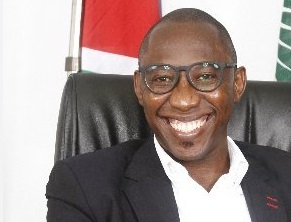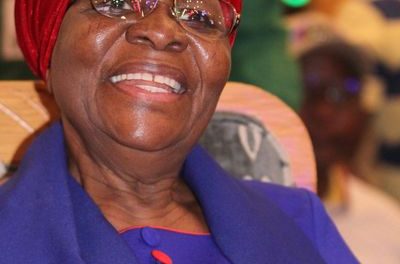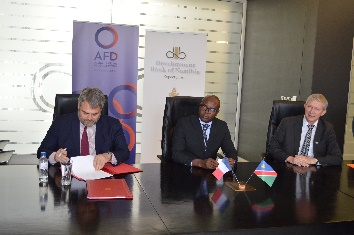
Corruption robs everybody – Erongo Governor André at anti-corruption conference

By Adolf Kaure.
The Governor of the Erongo Region, Neville André said that economic development is still stunted by corruption, when he spoke on Wednesday at the regional anti-corruption conference in Walvis Bay as a prelude to commemorate international anti-corruption day (IACD).
IACD is celebrated annually on 9 December in recognition of the United Nations Convention against Corruption (UNCAC), which was signed in Mexico in 2003. Namibia is one of the signatories to the Convention and ratified it in 2004. In general, this implies that all domestic anti-corruption legislation must be in line with UNCAC.
According to the Governor, corruption undermines democratic institutions, slows economic development and contributes to governmental instability. “Economic development is stunted because foreign direct investment is discouraged and small businesses within the country often find it impossible to overcome the “start-up costs” required because of corruption.”
“Corruption attacks the foundation of democratic institutions by distorting electoral processes, perverting the Rule of Law and creating bureaucratic quagmires whose only reason for existence is the soliciting of bribes,” he said during his conference keynote address.
André continued saying that corruption has negative impacts on every aspect of society. “Corruption not only follows conflict but is also frequently one of its root causes. It fuels conflict and inhibits peace processes by undermining the Rule of Law, worsening poverty, facilitating the illicit use of resources, and providing financing for armed conflict,” he said.
This year’s IACD is being held under the theme “Recover with Integrity” to highlight the crucial link between anti-corruption and peace, security, and development and at the core of the notion of tackling crime.
He expressed praises for the Anti-Corruption Commission for successfully investigating high-profile politically-exposed persons for corrupt acts in Namibia. “In terms of fighting corruption, the laws are applied fairly to all people, regardless of their political, economic and social status in society.”
“Even suspects in the aforesaid ‘Fishrot Scandal’ are before court facing corruption, fraud, money laundering and racketeering charges.”
“This demonstrates that no person is above the law in Namibia. As reference to the afore-mentioned, I am happy that the Anti-Corruption Commission has dealt with key cases worth over N$317 million, like the fisheries scandal cases (Fishcor & Namgomar), known as the Fishrot case,” he said.
He further urged everyone to play their part in mitigating corruption, saying: “States, government officials, civil servants, law enforcement officers, media representatives, the private sector, civil society, academia, the public and youth alike, all have a role to play in uniting the world against corruption.”
Namibia has made it a priority to combat corruption, promote transparency and strengthen institutions through pillars and targets outlined in the National Development Plan 5 (NDP5), the Harambee Prosperity Plan 2, Vision 2030 and the Sustainable Development Goals.













































